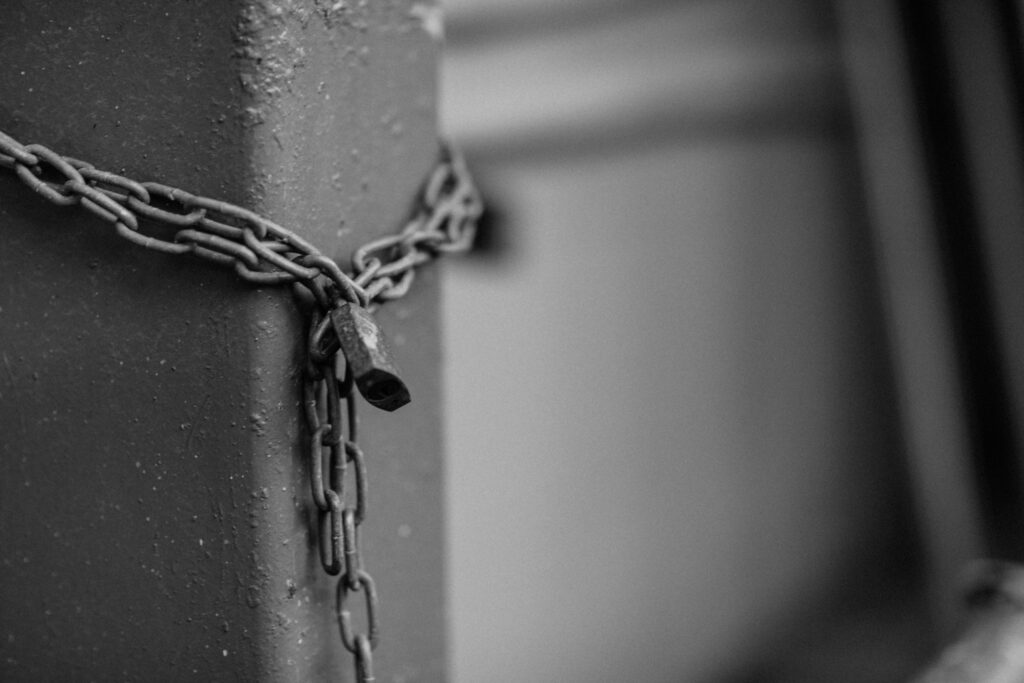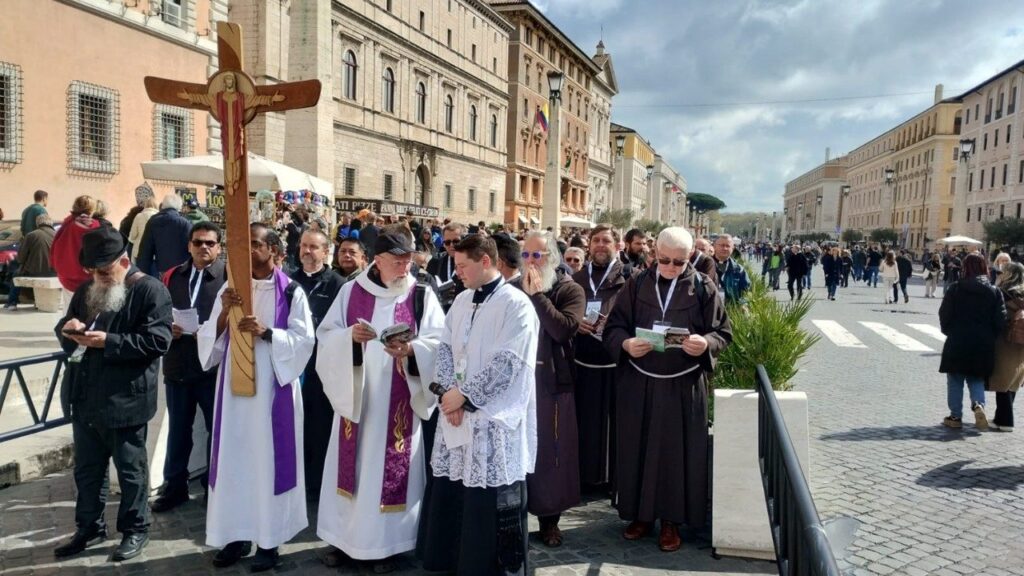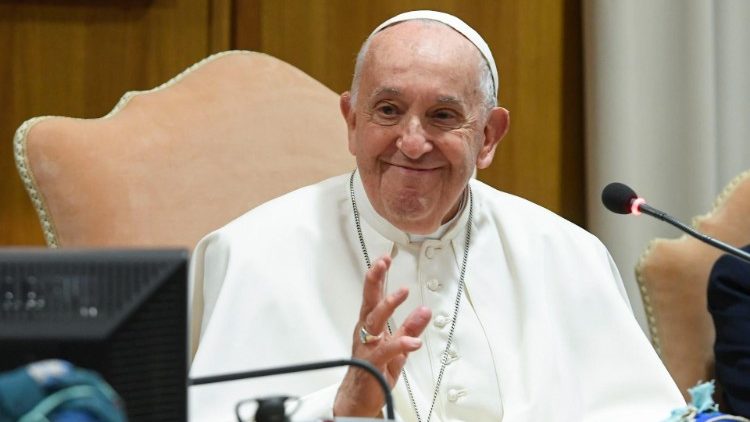Pope Francis: Modern Slavery is a Crime Against Humanity
In a message posted on the X @Pontifex account, on the occasion of the International Day for the Abolition of Slavery, Pope Francis has reaffirmed his condemnation of practices such as forced labor, prostitution, and organ trafficking. In his words: “We cannot tolerate that the image of the living God is subjected to the most […]

In a message posted on the X @Pontifex account, on the occasion of the International Day for the Abolition of Slavery, Pope Francis has reaffirmed his condemnation of practices such as forced labor, prostitution, and organ trafficking. In his words: “We cannot tolerate that the image of the living God is subjected to the most aberrant trafficking.”
“Modern slavery – human trafficking, forced labor, prostitution, organ trafficking – is a crime against humanity. We are all a reflection of the image of God, and we cannot tolerate that the image of the living God is subjected to the most aberrant trafficking.” This is what Pope Francis expressed in a message published today, December 2, on the X @Pontifex account, on the occasion of the International Day for the Abolition of Slavery. This date was established by the UN to commemorate December 2, 1949, when the General Assembly approved the United Nations Convention for the Suppression of the Traffic in Persons and of the Exploitation of the Prostitution of Others.
In 2024, the Pope has once again made his voice heard against modern forms of slavery, especially in his message for the 10th World Day of Prayer and Reflection against Human Trafficking, on February 8, the liturgical memorial of Saint Josephine Bakhita, the Sudanese nun who was sold into slavery as a child. In it, trafficking is described as a “global tragedy,” to which “it is never too late to decide” to react. In memory of Saint Bakhita, Francis stresses, we are all called “not to remain still, to mobilize all our forces,” to respond to this call, to transformation in order to get to the root of the phenomenon, eradicating its causes. “To recognize the dignity of every person,” he explains, “and to act against trafficking and all forms of exploitation.”
Trafficking is often invisible. The media, thanks also to courageous reporters, shed light on the slavery of our time, but the culture of indifference anaesthetizes us. Let us help together to react, to open our lives, our hearts, to so many sisters and brothers who are treated as slaves. The Pope asks us to listen to the cry for help of those who suffer in conflicts or wars, of those affected by the effects of climate change, of forced migrants, of those who are subjected to sexual or labor exploitation, especially women and girls.
On September 19, in a message written on the occasion of the presentation of the book “Past, present and future of transitional justice: The Latin American experience in the construction of world peace,” the Pontiff recalled the reaction of Queen Isabel of Castile when she learned of the sale of indigenous people as slaves, after one of Columbus’ first voyages to America. A clear example, for Pope Francis, of “a situation of conflict and repression in which a massive violation of human rights occurred,” which was immediately followed by “the set of measures adopted by the Crown, which will be the germ of our modern declarations of human rights.”
The Pope draws three lessons from the event: The first is that “history does not go backwards” and that from the wounds of certain situations we must reconstruct a reality of greater justice. The second lesson “is the immediate response” of Queen Elizabeth “as a political authority” and as a “moral conscience” that stands up in defense of human dignity and is capable of “courageous, innovative and firm solutions,” adopting a remedial measure, “freeing slaves even at the cost of her own money” and institutional reform, “prohibiting slavery and claiming the fundamental rights of those harmed in a proactive and comprehensive manner.” The third lesson, described by Francis as “perhaps the most difficult,” concerns “the effective and concrete application of these provisions.” “A treaty, a signature, a law, can be a dead letter,” he says, if the means are not put in place so that, with seriousness, common sense and patience, not only the letter, but also the spirit that animates it, reaches those to whom it is addressed.
Pope Francis also addressed young students at the Catholic University of Louvain during his apostolic trip to Belgium on September 28, where he spoke about modern forms of slavery. He denounced the “violent and arrogant” evil that destroys the environment and peoples, of which war is the “most brutal expression.” He also highlighted corruption and modern forms of slavery, evils that sometimes “contaminate religion itself” by turning it into “an instrument of domination.” “But this is blasphemy,” says Pope Francis. “The union of men with God, who is saving Love, thus becomes slavery. Even the name of the Father, which is a revelation of care, becomes an expression of arrogance.”
At the General Audience of 20 September 2023, in which he recalled the testimony of the missionary Bishop Saint Daniel Comboni, the Pope reiterated what he had said at his meeting with the authorities of the Democratic Republic of the Congo, in Kinshasa, on 31 January 2023.
As Christians, therefore, we are called to fight against all forms of slavery. Unfortunately, slavery, like colonialism, is not a thing of the past. Unfortunately. In the Africa so dear to Comboni, today torn apart by numerous conflicts, after the political one, an equally enslaving “economic colonialism” has been unleashed (…). It is a drama to which the economically more advanced world often closes its eyes, ears and mouth”. I therefore renew my appeal: “Stop suffocating Africa: it is not a mine to be exploited or a land to be plundered”. Human trafficking in Laudato si’ Finally, let us recall that Francis, in his encyclicals Laudato si’ and Fratelli tutti, linked new forms of slavery to economic and social inequalities, pointing out that human trafficking is fuelled by these injustices. In Laudato si’ he calls for combating human trafficking through forms of international cooperation involving governments, international organisations, civil society organisations and all men and women of good will. He also underlines the importance of promoting human dignity, social justice, equality and solidarity in order to eradicate human trafficking.
In the Encyclical Fratelli tutti, Pope Francis stresses that it is the task of politics to find a solution to all that violates fundamental human rights, such as social exclusion; trafficking in organs, tissues, arms and drugs; sexual exploitation; slave labour; terrorism and organised crime. And he makes a strong call for the definitive elimination of trafficking, “a disgrace for humanity”, and of hunger, since it is “criminal” because food is “an inalienable right”.
Related

Technology with a Human Face: Pope Francis’ Call for Ethical and Caring Use
Exaudi Staff
01 April, 2025
1 min

Pope Francis Continues Optimistic Recovery and Maintains Work Pace
Exaudi Staff
01 April, 2025
2 min

The Pope to the Missionaries of Mercy: God became man to reveal to the world that he never abandons us!
Exaudi Staff
30 March, 2025
2 min

God’s Mercy and the Call to Peace in Pope Francis’ Angelus
Exaudi Staff
30 March, 2025
3 min
 (EN)
(EN)
 (ES)
(ES)
 (IT)
(IT)

